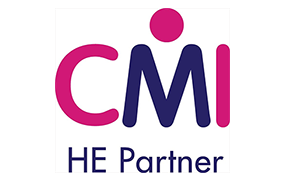BSc (Hons) Agricultural Business Management (Foundation Year)
Advances in how food is produced, marketed, procured, and distributed, have created a demand for graduates with the ability to manage increasingly complex global supply chains. Our programme focuses on equipping you with the advanced skills needed to deliver sustainable business management solutions to achieve positive outcomes for businesses and consumers.
Course overview
This degree course with a foundation year incorporates an extra year of study at the start of your course, so that you can progress with confidence. It will develop the skills you need for your later studies. It is particularly suitable if:
- You don’t have the grades for immediate entry onto a three-year course
- You have non-traditional qualifications or experience
- You’re starting university after some time away from education
- You’re looking for more support during the transition into university study
The BSc (Hons) in Agricultural Business Management will ensure you have the skills and knowledge required for a successful and rewarding career working in a range of roles in the extended agri-food supply chain. Whether you want a corporate career bringing about global change or have aspirations of developing a family business, our degree programme will support you in achieving your goals.
You will have numerous opportunities to attend networking events and broaden your horizons through a range of external trips and activities. You can also develop your own business ideas and receive support through Ignite, our Enterprise and Entrepreneurship Programme.
On successful completion of the BSc (Hons) Agricultural Business Management programme, you may also obtain a Chartered Management Institute (CMI) Diploma (Level 5) in Management and Leadership. This is a qualification developed in consultation with employers, proven to improve employability upon graduation. In addition, membership to CMI is free for three months after graduation.
Work placement
In your third year of the programme, you have the opportunity to apply the skills and knowledge learnt during an Industry Placement. This allows you to build your expertise with prestigious companies in the UK or abroad, whilst growing your range of sector contacts.
The Integrated Foundation Year is suitable for applicants who have taken level 3 qualifications (A levels, BTEC etc.) in the UK. Overseas students who have not studied in the UK and completed their secondary education in their country, should look at taking an International Foundation Programme in order to meet the entry criteria for the degree programmes offered by the RAU.
Please note that a foundation year is not the same as a foundation degree (FdSc). A foundation year will usually lead onto a three-year degree course, whereas a foundation degree is a standalone qualification generally studied for two years.
For UK students (as of March 2020) a visa may not be required but this may change. For non UK/EU nationals (current Tier 4 visa students), the student will have to arrange their own visa.
Accreditations and partnerships
We are delighted to work with a wide range of businesses, partners and accreditation organisations, some of which are shown below:



Course content
Across the programme Employability Standards are built into every module. These are designed in consultation with employers, so you will always be able to see the relevance of what you are studying to your future career.
Timetables
Please note that while we make every effort to ensure that timetables are as student-friendly as possible, scheduled teaching can take place on any day Monday to Friday. Wednesday afternoons are normally reserved for sports and societies activities.
Modules
Each module is worth a specified number of credits. Each credit equates to 10 hours of total study time. Total study time includes scheduled teaching, independent study and assessment activity.
Full-time students normally take modules worth 60 credits per 15 week semester but this can vary depending on your elective choice. Part-time students taking proportionally fewer credits per semester. All students take a total of 120 credits per level and 360 credits for the degree as a whole. Your overall grade for your degree is based on marks obtained for modules taken at level 5 and level 6 (weighted 30:70 accordingly).
The modules available for this degree are as follows:
Foundation year
The Foundation year will provide a common core of academic and study skills sufficient to prepare you for subsequent study and academic success at undergraduate level. It will give core underpinning knowledge, skills and understanding in key areas of contemporary issues, provide underpinning subject-related skills and knowledge in key areas required for undergraduate study, including Mathematics, Numeracy and IT. It will also provide generic skills and academic knowledge to support your confidence and discipline as appropriate for higher education study and give subject-specific grounding, in terms of research topics and study focus, to support progression into degree level study in your chosen degree.
- 0IFY20 Land-use and Management: An introduction to the many and diverse ways in which land is utilised and managed, especially within the rural economy, as well as in urban areas. There will also be field trips to explore some of the land-related issues
- 0IFY21 Countryside Evolution and Development: An introduction to the wide range of current socio-economic, political and environmental issues that influence change in our countryside environments
- 0IFY22 Enterprise and Marketing: A comprehensive overview of the fundamentals of business such as types of business ownership, business aims and objectives, business functions, internal and external environment and marketing
- 0IFY23 Land-based Data Handling: Learn about a wide-range of data skills including mapping and spatial data, laboratory analysis, desk-based data and fieldwork. This encompasses biodiversity, climate, soil, food production, animal science and the built environment
- 0IFY24 Food and Farming: Understand core scientific theories within agriculture and how they impact on rural business and agricultural management. Including arable, livestock and equine husbandry, basic animal and plant anatomy and physiology, pest and pathogen control and environmental and soil science
- 0IFY25 Developing your Skills: Explore your personal values, looking at the human, social and emotional aspects of professional learning to support the transition to studying at degree level
Year one
In the first year, you will focus on the fundamentals of business management, marketing and finance.
- 4B001 Practical Business Finance and Accounts: This module introduces students to financial principles and tools essential for rural and agri-business management. Topics include financial statements, budgeting, cashflow, investment appraisal, and risk analysis. Students develop analytical and communication skills through practical applications. Assessment includes a 2000-word problem sheet and a 2000-word professional practice report. The module supports understanding of financial decision-making and performance evaluation in business contexts.
- 4M002 Professional, Practical and Study Skills: This module develops academic, employability, and practical skills for success in university and land-based careers. It includes reflective writing, data handling, digital literacy, and hands-on tasks relevant to the sector. Students explore sustainability, industry challenges, and professional development. Assessment includes a skills portfolio, a 1000-word reflective account, and a group presentation on a sustainability challenge. The module supports self-awareness, technical competence, and a sustainable mindset.
- 4B002 Introduction to Business and Management: This module explores internal and external factors shaping business organisations. Topics include marketing, HR, operations, leadership, and change management, with emphasis on sustainability and digital transformation. Students analyse case studies and develop teamwork and communication skills. Assessment includes a 1000-word essay, a 2000-word case study, and a group presentation. The module supports foundational understanding of business functions and strategic decision-making.
- 4A005 Farming Systems and Sustainability: This module examines diverse farming systems including arable, livestock, mixed, organic, regenerative, and agroecological approaches. Topics include climate change, soil and water management, urban agriculture, and future farming scenarios. Students engage with farm visits, guest speakers, and case studies. Assessment includes a 10-minute recorded presentation and a 2500-word case study-based report. The module supports critical evaluation of sustainability challenges, system transitions, and agroecological practices across global and UK agricultural contexts.
- 4B003 Entrepreneurship, Intrapreneurship and Enterprise: This module examines how innovation drives new ventures and transformation within existing businesses. Topics include entrepreneurial mindsets, opportunity identification, business modelling, and intrapreneurial leadership. Students engage with real enterprises and apply theory to practice. Assessment includes a 10-minute audio-visual presentation and a 3000-word group report. The module supports creative thinking, strategic planning, and sustainable business development.
- 4B004 Business Informatics: This module introduces statistical techniques and information systems for business analytics. Topics include data visualisation, probability, spreadsheet modelling, and ethical data use. Students develop technical skills in Excel and data interpretation. Assessment includes a 1500-word spreadsheet skills exercise and a 2500-word data analysis report. The module supports data-driven decision-making and technical proficiency in business contexts.
Year two
- 5M001 Industry Engagement: This module provides students with a structured industry placement to develop professional, technical, and reflective skills in a real-world context. Students complete a minimum of 444 hours of work-based learning aligned to their career goals. Assessment includes a CV and personal statement (500 words) and a reflective portfolio (1000 words). The module supports employability, self-awareness, and the application of academic knowledge in professional settings.
- 5B001 Marketing Management: This module guides students through strategic marketing planning, market analysis, and decision-making. Topics include global trends, consumer behaviour, competitor evaluation, and ethical marketing. Students apply frameworks to real-world business scenarios. Assessment includes two 2000-word professional practice reports focused on analysis and decision-making. The module supports evidence-based marketing strategy development and sustainable business practices.
- 5B005 People and Organisations: This module explores organisational behaviour through topics such as leadership, motivation, personality, and culture. Students engage with case studies, role-play, and business visits to apply theory in practice. Assessment includes a 15-minute group presentation, a 2000-word case study, and a written exam. The module supports critical analysis of workplace dynamics and fosters skills in communication, teamwork, and organisational evaluation.
- 5W007 Global Development and Environmental Sustainability: This module examines the intersection of global development and environmental sustainability. Topics include climate change, resource management, environmental justice, and sustainable economies. Students engage with case studies and policy frameworks. Assessment includes a 1000-word academic poster and a 3000-word scientific report. The module supports critical evaluation of development models, sustainability strategies, and global equity across diverse contexts.
- 5B003 Financial management: This module introduces financial principles and decision-making tools for business success. Topics include financial statements, capital budgeting, working capital, and financial planning. Students apply theory to real-world scenarios and analyse companies using ratio analysis. Assessment includes a 15-minute individual presentation and a 3000-word essay. The module supports strategic financial thinking and practical application in business contexts.
- 5M002 Research and Evidence: This module develops students’ ability to design and justify research proposals using both quantitative and qualitative methods. Topics include study design, data analysis, ethics, and communication of findings. Students engage with real-world problems and explore research applications across disciplines. Assessment includes a 2500-word research proposal and a 2-hour online test. The module supports evidence-based thinking, analytical skills, and preparation for the Level 6 dissertation.
- 5A009 Alternative Cropping Systems: This module explores the role of alternative crops in sustainable agriculture. Topics include cover crops, pulses, perennial grains, tropical staples, and industrial crops. Students engage with case studies, field visits, and farmer-led innovations. Assessment includes a 1-page infographic and a 2000-word resilient cropping plan. The module supports critical evaluation of crop-specific strategies, agroecological principles, and climate-resilient farming systems.
Year three
In the final year, you will have the opportunity to select elective modules and specialise in subjects of particular interest and relevance to your future career aspirations.
- 6B001 Changing Consumer Behaviour: This module explores the psychological, sociological, and cultural factors influencing consumer behaviour. Topics include ethical consumption, opinion leadership, technology, identity, and globalisation. Students critically assess marketing strategies and behavioural interventions aimed at promoting sustainable consumption. Assessment includes a 1600-word annotated bibliography and a 2400-word essay. The module supports cross-disciplinary analysis and the development of innovative behaviour change strategies.
- 6B004 Organisations in a Changing World: This module examines how organisations adapt to dynamic environments, drawing on theories from management, sociology, and psychology. Topics include leadership, ethics, decision-making, diversity, and organisational culture. Students engage with real-world case studies and business visits. Assessment includes a 30-minute group presentation and a 3000-word professional practice report. The module supports critical evaluation of organisational challenges and the development of effective management strategies.
- 6M001 Research Project: This module enables students to undertake an independent research project aligned with their subject area. Topics are student-selected and supported through supervisor meetings and workshops. Assessment includes a 5-minute progress presentation and a 12,000-word thesis or multimedia portfolio. The module supports critical evaluation, ethical research design, and evidence-based recommendations for real-world challenges
Plus a choice of TWO electives, one selected from each group from those shown below:
Group 1
- 6A004 Farm Business Consultancy: This module explores strategic consultancy for small and medium-sized farm businesses. Topics include financial analysis, investment appraisal, taxation, and feasibility planning. Students engage with case studies and industry practices. Assessment includes a 1500-word accounts analysis and a 2000-word strategic consultancy report. The module supports critical evaluation of farm performance, financial planning, and advisory techniques for sustainable business development.
- 6B006 Rural Entrepreneurship: This module supports students in developing sustainable rural ventures. Topics include idea generation, business modelling, market analysis, financial planning, and digital marketing. Students engage with real enterprises and build business plans. Assessment includes a 10-minute recorded pitch and a 3000-word business plan. The module supports innovation, strategic thinking, and entrepreneurial skills tailored to rural contexts.
- 6L005 Rural Land and Business Management: This module explores agricultural tenancy law and strategic estate planning. Topics include the Agricultural Holdings Act 1986, Agricultural Tenancies Act 1995, succession, capital taxation, diversification, and rural asset management. Students engage with case studies and site visits to apply legal and business frameworks.
Group 2
- 6W001 Countryside and Environmental Management: This module addresses contemporary countryside issues such as biodiversity loss, climate change, and rural development. Students explore policy, land management strategies, and sustainability through field visits and case studies. Assessment includes a 1500-word grant application, a presentation of a countryside improvement plan, and a 7-day timed assessment. The module develops applied knowledge and strategic thinking for environmental management careers.
- 6A002 Agri-Food Systems and Policies: This module examines food systems through systems thinking and the One Health framework. Topics include food security, policy development, economics, and regenerative agriculture. Students engage with debates, case studies, and guest speakers. Assessment includes a 1000-word academic poster and a 2500-word literature review. The module supports critical evaluation of global food policy, health interconnections, and sustainable system design.
- 6B007 Corporate Finance: This module provides a comprehensive foundation in corporate finance. Topics include capital budgeting, risk and return, portfolio theory, mergers and acquisitions, and sustainable investment. Students analyse real-world financial decisions and market strategies. Assessment includes a 15-minute individual presentation and a 3000-word essay. The module supports strategic financial planning and decision-making in corporate contexts.
The availability of electives to individual students will be dependent on timetabling considerations and on sufficient students electing to take part.
Disclaimer information
The University has established various rules and regulations that you must agree to and follow if you accept an offer to study with us. View our full disclaimer notice.
Careers and graduate destinations
- Business development manager
- Facility operations manager
- Agricultural consultant
- Commodity trader
- Agricultural marketing
- Agricultural operation specialist
"I did a placement in events at a shooting ground, EJ Churchill, which benefitted me hugely. I made some great contacts and learnt lots."
Tom Bonner, Graduate
Entry requirements
Typical offers
Required: GCSE minimum five GCSEs at Grade C/4 including English Language and Mathematics (or Maths Numeracy for Welsh applicants) plus satisfactory level 3 qualifications:
- A-Level: (example grades EEE) – minimum of 48 UCAS tariff points across either three A-levels or two A-levels and two AS level subjects or equivalent qualifications
- C&G Advanced Technical/BTEC - Level 3 Extended Diploma (1080) at Pass-Pass-Pass
- International Baccalaureate: 24 points
- Access to Higher Education: Pass course with 45 credits at level 3 (Pass in Functional Skills level 2 are accepted in lieu of GCSE English & Mathematics)
Visit the UCAS website to calculate your UCAS Tariff points from the qualifications and grades achieved.
You may also be eligible for a contextual offer if you’re from one of our link colleges, have been in care, from a non-white ethnic background, live in an area with low progression rates to university or you are a veteran/child of an armed forces family.
Flexible entry
The University welcomes interest from applicants who may not have the standard entry requirements. A wide range of qualifications and experience are accepted in order to join University degree programmes. The University always considers evidence of personal, professional (APL) and educational experience, (APEL), which show an ability to meet the demands of their intended programme of study.
Further information
Alternative entry routes are available for a range of other qualifications. Prior experience is also considered, subject to approval by the programme manager and admissions staff.
Read more general information about our entry requirements.
International students will also need to achieve IELTS Academic or equivalent at the appropriate level for your programme of study. English language requirements for international students.
For any further help, please contact our admissions team:
- Email: admissions@rau.ac.uk
- Telephone: +44 (0)1285 889912
Fees
2026-27 Applicants
For the academic year 2026-27 the tuition fees for this course are:
| UK | International | |
|---|---|---|
| Full-time Foundation year | £5,760 per year | £16,950 per year |
| Full-time | £9,790 per year | £16,950 per year |
For part-time study, please contact admissions@rau.ac.uk for further information.
Please also refer to the funding your time at university page.
Tuition fees may be subject to an inflationary increase each year as set out in our Access and Participation Plan and are subject to Government and regulatory body conditions.
If you are an Irish national you can check if you meet the requirements for Home Fees. Please visit the UKCISA website and consult the pdf guide “England HE – who pays Home Fees”. First check category ‘3 years in Republic of Ireland/UK/Islands, settled in UK’ or ‘Brexit temporary offer for courses starting before 2028: Irish citizens with residence in Europe or overseas territories’. You will possibly need to be fee assessed when you submit an application for study to the RAU.
Scholarships
The University offers a wide range of generous fee waivers and bursaries. To find out more about the these, please visit the bursaries, awards and scholarships page.
Ready to take the plunge? Apply now
Applications should be made by the UCAS deadline to ensure we are able to offer you a place on your first choice course. However, if you have missed the deadline please contact Admissions@rau.ac.uk as there are usually places available.
If you would like to apply during UCAS Extra or Clearing, please check that we have places available.
Applicants wishing to study on a course on a part-time basis will need to apply directly to the RAU.
Please contact admissions@rau.ac.uk to discuss your requirements and obtain an application form.


